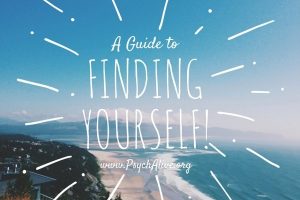How to Not Lose Track of What’s Really Important
 In any given lifetime, a person can be many things, often, to many people. We are parents, partners, sons or daughters, siblings, best friends, bosses, and co-workers. The many shoes we fill can spread us fairly thin. At times, the very fullness of our lives makes it necessary to prioritize and plan in ways that can seem more practical than personal. We save up our spare time like coins in a piggy bank, but, too often, by the time we get around to spending it, we forget what it really was we were saving for in the first place. In truth, many of us are guilty of unintentionally placing form over substance.
In any given lifetime, a person can be many things, often, to many people. We are parents, partners, sons or daughters, siblings, best friends, bosses, and co-workers. The many shoes we fill can spread us fairly thin. At times, the very fullness of our lives makes it necessary to prioritize and plan in ways that can seem more practical than personal. We save up our spare time like coins in a piggy bank, but, too often, by the time we get around to spending it, we forget what it really was we were saving for in the first place. In truth, many of us are guilty of unintentionally placing form over substance.
A good example of this is in the myth of the perfect family vacation. Most of us consider time spent with our partner or children precious. We plan and plan, book tickets and tables, build jam-packed itineraries, but when it comes down to it, we can sometimes be so bogged down in our intentions that we miss out on the actuality of our experience. It’s easy to be swept up in an internalized checklist, dragging our kids from site to site and posing for pictures, that we lose touch with what it feels like to be in that moment. We’re so busy creating memories that we forget to experience them.
This goes for many examples in our lives – large and small – from weekends away to weddings, from trips to the park to family reunions. Maybe, we plan a romantic night, setting a perfect stage and leaving no detail to chance. Then, the moment comes, and something inevitably throws us off, i.e. our partner shows up a little late, or we can’t think of what to talk about a few minutes into dinner. It’s not unusual for us to create scenarios in which we feel pressure for things to go a certain, very specific way and, ultimately, disappointment when they don’t. This can leave us to throw our hands in the air, give up, get upset, or sabotage the whole experience.
Why is this such a common pattern?
First of all, the more removed we become from slowing down, making connections, and really living our lives, the more we turn to fantasy to replace real relating. Most of us, to varying degrees, have a tendency to get caught up in fantasies of how things should be. We tell ourselves stories that play out like fairy tales about how our lives should go and how our relationships should look. If we’re not careful, these fantasies can slowly take over, becoming more important to us than our real experience. We spend time crafting a perfect picture rather than enjoying the real-time relating that would make the moment mean something to us on a deeper level.
We also possess an inner critic that further fixates on “should’s.” When we’re working all the time, it tells us, “You should spend more time at home. You’re letting everyone down.” When we’re at home, it reminds us, “You should really work harder. What makes you think you deserve free time?” This “critical inner voice” can be harsh, judgmental, and perfectionistic. It tells us that if we don’t do this or that or get things exactly right, then we are failures: terrible parents, awful spouses, losers in our careers, and unworthy human beings, in general. We get so lost in what we should be, that we lose a sense of who we are and what we want.
In addition to pressuring us, this critic can also be directed at others. For example, when we plan that date night, it’s that voice in our head that tells us, “She’s late. She doesn’t really care about you. This whole night is ruined.” Or, when our children start complaining, it says, “This trip is a disaster! Your kids don’t even like you. They’re so ungrateful!” The result of listening to this cruel, internalized coach is that we move further from what we seek to achieve. It sabotages us by giving us bad advice that goes against what we really want.
Between the fantasy reminding us how things should go and our critical inner voice telling us how terrible we are if they don’t, we are often so wrapped up in our own heads that we aren’t able to experience the world around us. We aren’t fully present for the people who matter most to us, and we aren’t really living up to our own deeper hopes and desires. The disappointment or emptiness we feel as a result further perpetuates the pressuring cycle of building up expectations and letting ourselves down.
As a result, many of us come up with more activities and pressures on ourselves in an effort to “fix” things. Perhaps, we want to get closer to our partner, so we keep making plans to connect but forget what it actually means to slow down, tune in, listen, and engage. Or maybe after being away for a few days, we want to “make it up” to our child, so we plan an elaborate day of ice cream, bike rides, beach trips, etc. Then, before we even get out the door, our kid starts coming unglued, because all he or she really wanted was to stay home and play independently. Very often, our way of fixing things or making them right is more about us and not the other person or even the actual goal. When our actions arise as a means to alleviate guilt or fulfill a fantasy, we often aren’t being totally ourselves in the moment. We may come off as tense, anxious, or controlling, and we certainly aren’t feeling relaxed, happy, and fulfilled.
This is the big trade-off of putting form over substance or quantity over quality. We may spend twice as much time with someone we love but engage in no loving behavior. We may travel to the dream destination without experiencing the thrill and enjoyment of being there. We may feel relief that we’ve momentarily quieted our inner critic or posted a nice picture of what looks like a good memory, but we haven’t necessarily gotten any closer to our deeper goal, of which we have often lost track. This is why, rather than simply focusing on a concrete activity or plan, we need to pay attention to what is most important to us. What we’ll often find is that we have lost touch with what it was we really wanted to experience.
It is often easier for us to settle into listening to our inner critic or getting caught up in fantasy than giving ourselves permission to live in the moment – to allow ourselves to love and be loved, to give people our full attention, to tune in, and live out our intentions. Really being our truest selves and going after what we want in life can feel uncomfortable and even frightening. We can’t experience pleasure without also feeling pain. As writer and researcher Brene Brown wisely wrote, “To let ourselves sink into the joyful moments of our lives even though we know that they are fleeting, even though the world tells us not to be too happy lest we invite disaster—that’s an intense form of vulnerability.” Keeping close to what matters to us is a vulnerable place to be, but it’s the only place in which we can live our lives fully as our honest selves.










Leave a Reply
You must be logged in to post a comment.